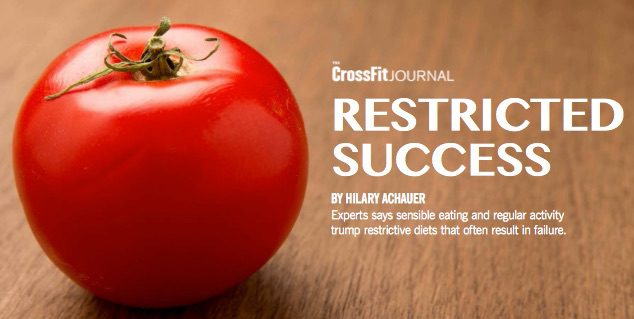Our bodies fight restrictive diets in every way possible, resulting in weight gain, not weight loss, over the long term.
Starting a new diet can be thrilling. It’s a time of hope and possibility. The process often starts with a trip to the drugstore for a notebook to write down the details of every meal. Then it’s off to the grocery store to fill the cart with strange ingredients such as chia seeds and apple-cider vinegar. Next, a post on Facebook and Instagram to let everyone know it’s Day 1 of your new diet. Through willpower and perfect eating habits, you are going to get the body of your dreams, at which point you’ll move on to other things.
And then, a year later, you find yourself exactly where you started. Or maybe a few pounds heavier, filled with disappointment.
If you’ve ever experienced this scenario, you’re not alone. And it’s not your fault.
In her book “Secrets From the Eating Lab: The Science of Weight Loss, the Myth of Willpower, and Why You Should Never Diet Again,” Traci Mann, professor of psychology at the University of Minnesota, shares her findings after 20 years of research. She discovered restrictive diets don’t work, often result in weight gain and might ultimately be unhealthy. What’s more, losing weight is not a matter of willpower. When we diet, we are fighting against our brains and our biology.
All this doesn’t mean we should sink into a torpor surrounded by potato chips and ice cream. Istead of riding the roller coaster of restrictive diets, Mann recommends adopting healthy eating habits, exercising… Continue Reading

